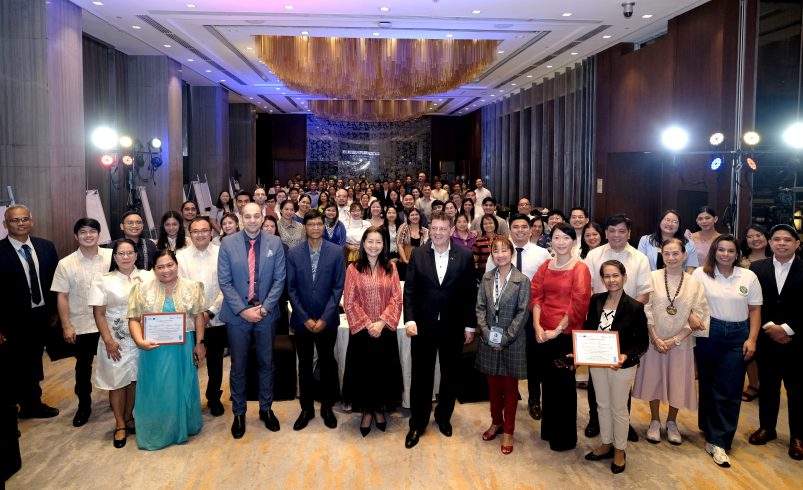EU-PH Green Economy Partnership Offers Funding for Circular Economy Projects
- August 26, 2025
- 0

The European Union (EU) and the Philippines Green Economy Partnership have launched the Circular Solutions Innovation Challenge in Pasig City. The goal is to accelerate the country’s transition toward a green, circular, and inclusive economy.
The initiative, funded by the EU, is led by the Department of Environment and Natural Resources (DENR) and the Department of the Interior and Local Government (DILG), with implementation support from the United Nations Development Programme (UNDP).
“The European Union-Philippines Green Economy Partnership will support innovative solutions to address environmental challenges at local level that will improve the lives of the people in the Philippines and create green jobs. We count on the knowledge, creativity and funding of MSMEs across the Philippines to put solutions into action and to promote circular economy. The Philippine people can count on our experience in Europe, and we are here as Team Europe to support Philippine solutions,” said Dr. Marco Gemmer, Head of the Cooperation Section at the Delegation of the EU to the Philippines.
The program will provide up to PHP 2.28 million (EUR 35,000) in funding and implementation support for each selected innovation. Proposals must be aligned with the Circular Economy priorities identified by LGUs—such as plastic waste reduction, organic waste management, and sustainable tourism—in addition to being technically sound, financially viable, and inclusive. Selected solutions should also demonstrate potential to scale or be replicated across other communities.
Assistant Secretary for International Relations Lilian De Leon of the DILG noted the importance of partnerships in driving circularity. “We are building together a future where sustainability is not just a goal but a shared responsibility, one that is deeply practiced in our local realities and communities,” she said.
The first ten LGUs supported by the Partnership, which are Baguio, Pasig, Quezon City, Caloocan, Iloilo, Ormoc, Davao, Puerto Princesa, the Island Garden City of Samal, and Del Carmen, have each developed Circular Economy portfolios to identify system gaps and opportunities where innovation can make a difference. These efforts range from reducing plastic waste, managing organic waste, and promoting sustainable tourism.
Assistant Director Maria Dorica Naz-Hipe of the DENR’s Environmental Management Bureau stressed the role of collaboration. “We’ve seen that when national and local governments, communities, and the private sector move together, the results are lasting and more impactful,” she stated.
The launch builds on earlier funding efforts in April 2025 under the EU-PH Green Economy Partnership, when 27 civil society organizations received support under the EU-PH Green Economy Partnership’s Community Grants and Circular Economy Education & Behavioral Change Grants.
UNDP Philippines Resident Representative Dr. Selva Ramachandran highlighted the importance of integrated approaches: “This approach has been useful in designing co-owned, context-specific solutions—from policy to community innovation, from green business models to behavior change—ensuring the transition is innovative, integrated, sustainable, and locally owned.”
The call for proposals is open until September 26, 2025. Interested innovators may submit their circular economy solutions through https://go.undp.org/wgt
How can local communities and businesses further strengthen the Philippines’ transition to a circular and sustainable economy?
Follow Power Philippines on Facebook and LinkedIn or join our Viber community for more updates.
Photo Credit: UNDP Website